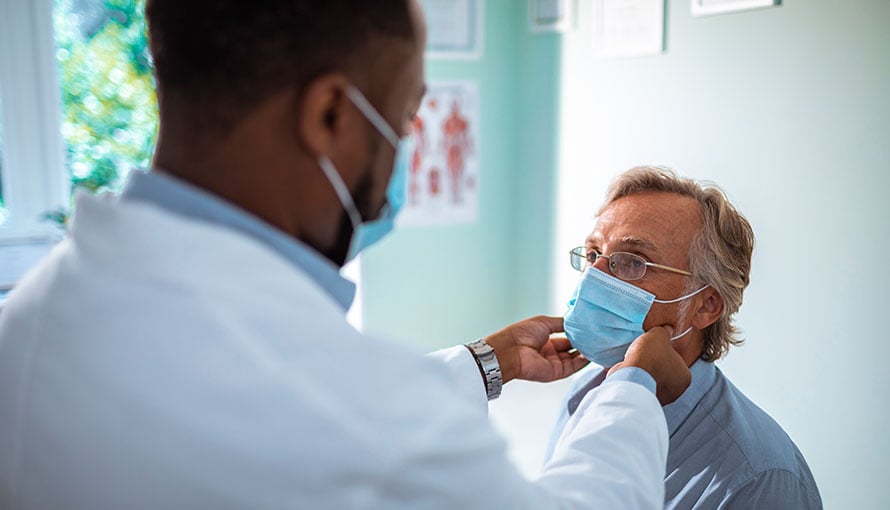Can Lymphoma Be Found Early With a Screening Test?

The goal of a screening test is to check for the presence of a certain disease in someone who is not experiencing any symptoms. Currently, there is no standardized Hodgkin and non-Hodgkin lymphoma screening test for individuals who are not already experiencing symptoms. Physicians can identify certain individuals who might have a higher risk of developing this form of cancer, but there is not yet an effective way to detect Hodgkin and non-Hodgkin lymphoma if a physician does not have a reason to believe it might be present.
Risk factors that can contribute to lymphoma
While researchers continue to work on developing a reliable lymphoma screening test, individuals with the following risk factors should have regular checkup examinations performed by an experienced medical professional:
- A history of HIV or Epstein-Barr virus
- An organ transplant
- A diagnosed autoimmune disease
- A history of cancer
Because the symptoms of lymphoma can often be attributed to more common conditions, such as infection, it’s important for high-risk individuals to let their physicians know about their personal risk factors if they experience any symptoms of lymphoma. Although many people with lymphoma risk factors never develop the condition, it’s important for a physician to perform testing to rule out the presence of cancer if symptoms do occur.
How is lymphoma diagnosed?
Even though there is no routine lymphoma screening test, early detection is possible for both Hodgkin and non-Hodgkin lymphoma. The typical diagnostic process involves a physical exam and medical history, along with a biopsy and cell/blood tests. At Moffitt Cancer Center, all of these services are provided in a single location, and the results are interpreted by a team of skilled oncologists and pathologists with experience in detecting various types of lymphoma. Furthermore, through ongoing research initiatives, we are continually investigating potential lymphoma screening options and treatments, bringing the entire cancer community one step closer to a reliable early-detection option and cure.
Medically reviewed by Sameh Gaballa, MD Malignant Hematology.
For more information about lymphoma screening, diagnosis and treatment, call 1-888-663-3488 or complete a new patient registration form online. Referrals are not required to consult with our oncologists.
